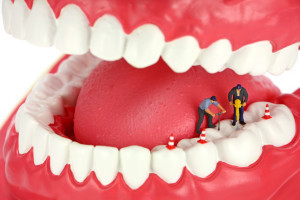Majority of dental patients now are aloof to their dentists. Either they are going through a certain problem, such as dental anxiety, or they are suffering from a financial problem. Regardless, all these can significantly affect the oral health.
Our oral health has deep connection with our body. No thanks to all the oral symptoms. They are the living proof why you suffer from severe general health conditions, like diabetes, heart-related illnesses and stroke. Nonetheless, dentistry always finds a way to help you recover your oral health. One possible you may experience is an oral surgery. While others find this option complex and scary, it pays to know that it isn’t.
An oral surgery helps you restore and improve your mouth’s function. The person who performs this procedure is an oral surgeon. An oral surgeon is the specialist who performs any dental surgeries, such as oral cancer treatments, sleep apnea and of course, wisdom teeth extraction. According to research, an oral surgery can either take place in two settings. Your oral surgeon may let you choose to do it inside his dental surgery center or inside a hospital. Whatever you choose, oral surgeon’s number one goal is to make your visit comfortable.
More often than not, an oral surgery requires the aid of sedation dentistry. Sedation dentistry involves a series of techniques that can lessen and reduce pain all throughout the treatment. This can range from local anesthesia to general anesthesia.
First timers who aren’t familiar with dental surgery, here are the several procedures you may learn and know.
Dental implant surgery is about replacing and solving missing teeth problems. Through artificial teeth, you can restore your mouth’s function, allowing you to look like having natural teeth all over again! Dental implant surgery comes with a number of stages. In most cases, the type of procedure you undergo will depend on your condition or case. Regardless, implant surgeries take months to complete.
Cosmetic dental surgery obviously, involves therapies that can help you improve your smile. Several therapies you may go through are dental veneers, dental crown, crown lengthening and dental fillings.
Impacted teeth extraction becomes necessary when your third molars are in sideways. Oral surgeons recommended this to avoid causing infections to the remaining teeth.
Corrective jaw surgery improves your bite. Therefore, when your oral surgeon suggests this, it’s either you suffer from TMJ or TMD disorder.
Facial injuries and deformities therapies also are part of an oral surgeon’s responsibility. Since they cater facial damages, they can treat and repair different types of trauma of your face, teeth, jaws and mouth.
With the help of technology, dental surgeries now are less invasive. To learn more, consult a professional dentist near you.
